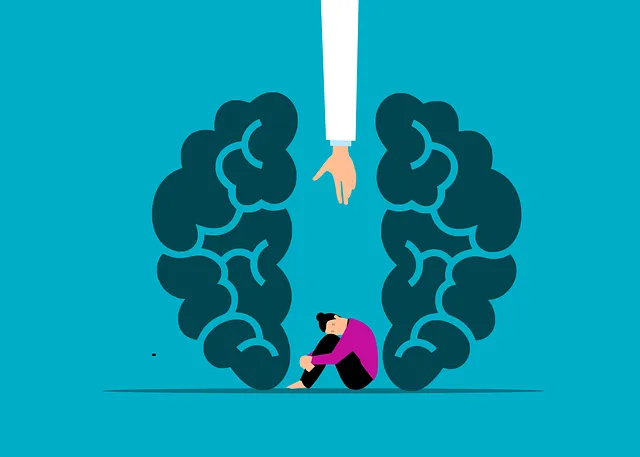Lakewood Kaiser Permanente's Social Skills Training is a holistic approach to managing mental health conditions, addressing isolation through tailored communication techniques, emotional regulation strategies, and self-care routines. This program combines evidence-based practices during mental health appointments with burnout prevention strategies for healthcare providers and sustainable self-care practices, fostering resilience and improving social connections within the healthcare network. By focusing on self-care, burnout prevention, and advanced communication, Lakewood Kaiser Permanente empowers individuals to thrive in social settings.
Social skills training is a powerful tool in managing mental health conditions, enhancing overall well-being, and improving quality of life. This comprehensive guide explores the significance of social skills development for individuals navigating mental health challenges, particularly within the context of Lakewood Kaiser Permanente’s specialized appointments.
We’ll delve into the benefits, key components, and practical strategies to integrate social skills training into your mental health journey, empowering you with essential tools for success.
- Understanding the Importance of Social Skills Training for Mental Health Conditions
- Benefits of Social Skills Training in Mental Health Appointments at Lakewood Kaiser Permanente
- Key Components of Effective Social Skills Training Programs
- Practical Tips for Incorporating Social Skills Training into Your Mental Health Journey
Understanding the Importance of Social Skills Training for Mental Health Conditions

Social Skills Training plays a pivotal role in managing and improving mental health conditions, offering individuals a path to enhance their interactions and overall well-being. Many mental health challenges can isolate people from social connections, leading to feelings of loneliness and further exacerbating symptoms. Therefore, learning and practicing social skills becomes an essential aspect of recovery.
At Lakewood Kaiser Permanente, mental health appointments are designed to include such training, focusing on developing inner strength and fostering meaningful relationships. Through these sessions, individuals learn effective communication techniques, emotional regulation strategies, and coping mechanisms tailored to their unique needs. Moreover, integrating Self-Care Routine Development for Better Mental Health and Stress Reduction Methods into social skills training enables a holistic approach, empowering people to navigate social situations with confidence while nurturing their mental health.
Benefits of Social Skills Training in Mental Health Appointments at Lakewood Kaiser Permanente

Social Skills Training at Lakewood Kaiser Permanente offers a transformative approach to mental health care, empowering individuals with effective communication and interaction techniques. This specialized program recognizes the profound impact of social connections on one’s mental wellness, addressing a critical aspect often overlooked in traditional therapy sessions. By incorporating evidence-based strategies tailored for mental health appointments at Lakewood Kaiser Permanente, patients gain confidence navigating social situations, fostering deeper relationships, and improving overall quality of life.
The benefits extend beyond the clinic walls, as participants learn sustainable self-care practices integrated with Burnout Prevention Strategies for Healthcare Providers. Encouraging open dialogue and self-reflection through Mental Wellness Journaling Exercises guides individuals to identify triggers, practice mindfulness, and cultivate resilience—essential tools for maintaining mental health in a fast-paced environment. This holistic approach ensures that patients are equipped not only to manage their conditions but also to thrive in social settings, fostering a supportive community within the Lakewood Kaiser Permanente healthcare network.
Key Components of Effective Social Skills Training Programs

Effective social skills training programs for mental health conditions incorporate several key components. First and foremost, self-care routine development is crucial. These programs teach individuals strategies to manage stress, improve emotional regulation, and maintain healthy boundaries. By integrating self-care practices into their daily lives, participants can better navigate social interactions and foster positive relationships.
Additionally, burnout prevention strategies for healthcare providers are often included. Given the demanding nature of mental health work, training should equip professionals with tools to avoid occupational burnout. Encouraging open communication, setting realistic expectations, and prioritizing self-care helps healthcare providers sustain their well-being while offering support to their clients. Communication strategies also play a vital role in these programs. Training in active listening, assertive communication, and empathy builds stronger connections between individuals struggling with mental health conditions and their support networks.
Practical Tips for Incorporating Social Skills Training into Your Mental Health Journey

Incorporating social skills training into your mental health journey can significantly enhance your overall well-being, especially when supported by resources like those offered by Lakewood Kaiser Permanente mental health appointment number. Here are some practical tips to guide you:
Start with small steps. Begin by identifying situations where you feel most comfortable and gradually work towards engaging in more challenging social interactions. For instance, start with a walk in the park or joining a local support group before moving on to more public settings. Compassion Cultivation Practices, like mindful listening and empathetic communication, can be practiced daily to build confidence in social settings. Remember, every small step counts as you navigate your mental health journey.
Engage in activities that align with your interests. Participating in hobbies or community events centered around what you love can make socializing more enjoyable and less intimidating. Public Awareness Campaigns Development focused on Mental Health Awareness can provide valuable insights and strategies for navigating social situations comfortably. Don’t be afraid to reach out to friends or family members who understand your struggles; their support can foster a sense of belonging and encourage continued growth in your social skills training.
Social skills training plays a pivotal role in enhancing the quality of life for individuals managing mental health conditions. As evidenced by the success stories from Lakewood Kaiser Permanente mental health appointments, these structured programs equip clients with essential communication and interaction abilities. By focusing on key components like role-playing, mindfulness, and peer support, social skills training becomes a powerful tool within the mental health journey. Incorporating practical tips tailored to individual needs can further optimize progress, fostering more fulfilling connections and improved overall well-being.






